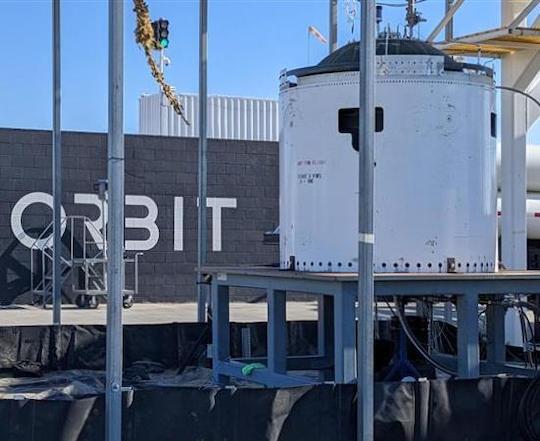
Tests of the fix for the January Virgin Orbit launch failure are almost complete.
COLORADO SPRINGS—The leader of bankrupt space company Virgin Orbit says it is seeing active interest from a “diverse group” of potential buyers in its small satellite launch system and is optimistic that bids will be received for the whole company rather than succumb to a piecemeal selloff.
The California-based company filed for Chapter 11 bankruptcy protection on April 4, and initial nonbinding bids are due May 4. Final binding bids are due by May 14. Virgin Orbit President and CEO Dan Hart hopes a new buyer will get the company’s launch operations up and running again with a small core of around 100 retained staff.
- A small core team is still at work
- The company hopes a buyer can restart launches
In the meantime, he laments the loss of talent that was laid off when Virgin Orbit went bankrupt. “Saying goodbye is tough,” he said, adding that “we had our first court proceedings that was really difficult and more importantly, ahead of that, we had to let go most of the team—all but a small portion of the team—which was brutally painful.”
The company ran into serious financial problems following a failed launch attempt from the UK with its LauncherOne vehicle on Jan. 9. The UK launch failure, attributed to a loose fuel filter which likely caused the premature shutdown of the vehicle’s second stage Newton 4 engine, came on top of significant delays to the mission itself. The event also followed net losses of $43.6 million reported in the company’s most recent third quarter 2022 results.
Hart acknowledges that the company’s financial challenges stem from its raising far less investment than projected in late 2021 in its merger with a special purpose acquisition company. “That pretty much set a time clock,” he says. From there, the company could not get its launch rate up quickly enough to cover its financial needs. The final straw came with the launch failure January. “That was not great timing for us,” Hart says. “We were in fundraising at the time.”
In the meantime, work with the slimmed down team continues toward the launch of the seventh mission with rocket number 8. “We’ve got six rockets in the factory, number 8 is well over 90% complete and rocket 9 is pretty much complete as well,” Hart says. The ninth rocket is the first upgraded LauncherOne 1.1 version with additional payload capacity and is the first of an intended new baseline standard.
The small team is multitasking to complete the current rocket production as well as finishing tests associated with verifying fixes to the fuel filter failure believed to have caused the launch failure in January. “We’ve got some folks turning wrenches that maybe don’t usually turn wrenches and people sitting on consoles that don’t always sit there. So we’re making use of the team,” Hart says.
“We installed the engine on our rocket booster a couple of weeks ago, and we’re almost finished up with the testing associated with the anomaly. We’ve got a couple of more things to do, and then we’ll close the anomaly. We did a simulation earlier this week where we flew Cosmic Girl (Virgin Orbit’s converted Boeing 747-400 launch platform) and did a simulated rocket drop. So, we are exercising the system. We’ve kept the smarts so that we can rebuild,” he adds.
Hart says the focus continues on working through the Chapter 11 process. “We’re talking to potential buyers of the company and keeping the activities and the team engaged while we do so,” he says. “It’s a very diverse group. Certainly you would know some of them, and others perhaps not.”
In the meantime, Hart acknowledges that the new buyer will be needed to carry through the company to the next launch. “It is going to impact us by a couple of months. We’re looking at the second half of the year–maybe early in the third quarter–to be able to do that,” he says.
Despite the issues, he maintains that the market prospects remain bright for the company across diverse potential sectors ranging from commercial and national security satellite launch to responsive defense applications and hypersonic flight tests. “The market is looking good–especially the areas where we are differentiated. Our international connectivity and engagement has been really positive and we have agreements in Japan, Australia and a couple of different countries in Europe, including the UK. So that aspect is strong,” Hart says.
“On the national security side, so is our ability to serve hypersonic tests and research and development in missile defense,” he adds. “Also in tactically responsive space, as well as logistically you know, the idea of providing logistics into denied areas is even a growing area. We have a fair amount of backlog in our manifest. But our issue has been just runway,” he concedes.

